The Guelta d’Archei is a guelta, or oasis, in the Ennedi Plateau in northeastern Chad. For centuries, caravans have stopped in the steep-faced canyon to water their camels. Every day, hundreds of camels can be seen drinking the black water of the guelta, their grunts and bellows echoing around the canyon walls.
The mostly knee-deep water has turned black over the years due to the incessant supply of excrement offloaded by the thirsty camels. Not exactly the perfect place for a swim, then, unless you happen to be a crocodile.
Crocodiles were once widespread throughout the Sahara until the early 20th century, when increased aridity combined with human persecution led to the extinction of many local populations. The best-known remaining population in Chad is found in the Guelta d’Archei, where West African crocodiles eat the fish that thrive on the algae-rich waters of the camel-dung fertilized guelta.
Frogs also inhabit the guelta, and desert antelope can sometimes be seen drinking from the precious supply of water. With the exception of the daily camel herders, humans are scarce. Chad is one of the least visited countries in the world, and the oasis sits in the middle of the Sahara.
But for those adventurous travelers who do brave the desert for a trip to the Guelta d’Archei, the reward is a surreal landscape in one of the Sahara’s most ancient oases, as attested by the rock paintings up on the cliffs, some of which date back to the middle Holocene.
Know Before You Go
The Guelta d'Archei is located in the Ennedi Plateau in north-eastern Chad, about 25 miles southeast of the town of Fada. Trips to the guelta can be arranged in the capital N'Djamena, but get ready for quite a voyage. It’s a four-day journey across the desert by 4×4 (or camel if you so desire), and then a few hours of trekking to reach the guelta itself. Alternatively, you can look for a flight into Fada and arrange a trip from there. Needless to say, be careful in or around the dung-blackened water. West African crocodiles are smaller and less aggressive than the closely related Nile crocodile, but they could still take a bite at a human.
Plan Your Trip
The Atlas Obscura Podcast is Back!



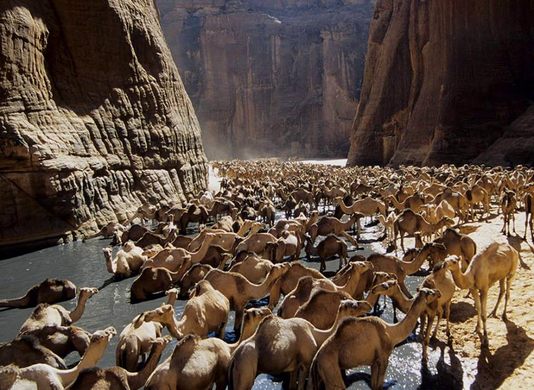
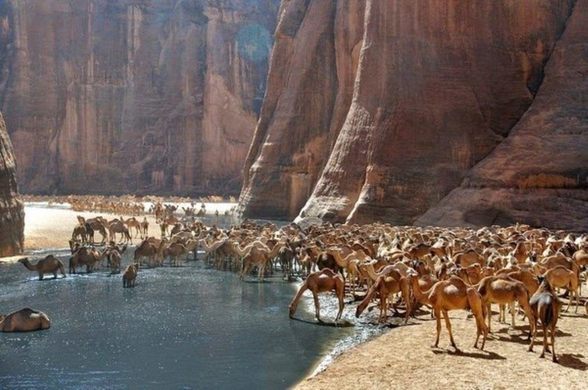
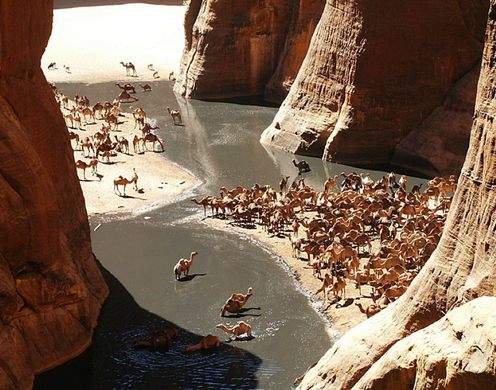
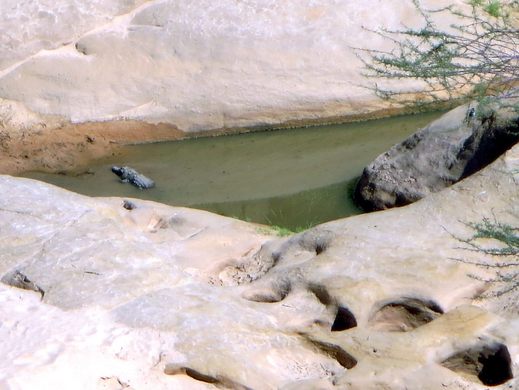
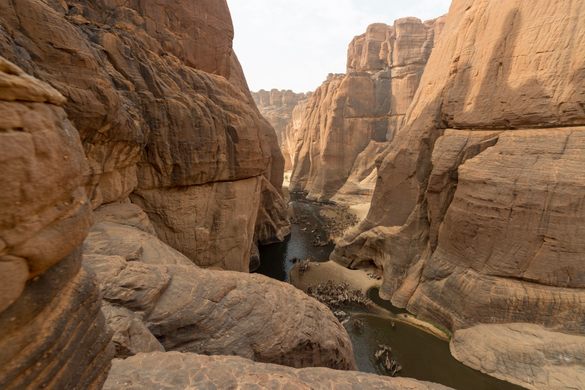
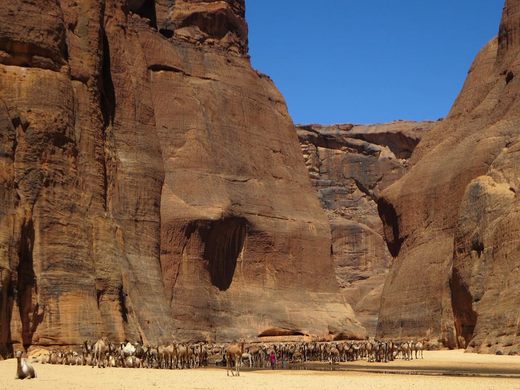
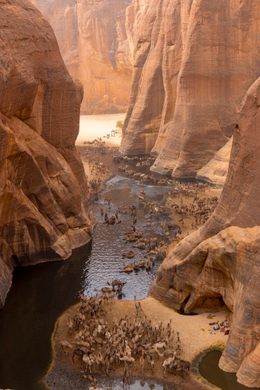
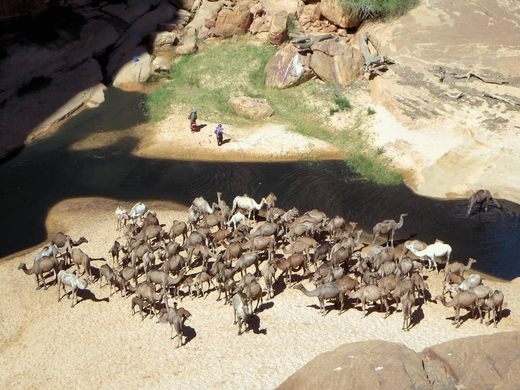
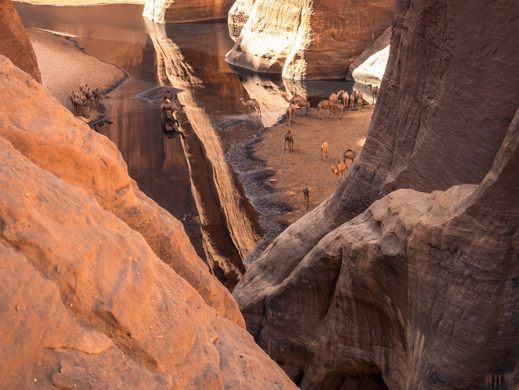


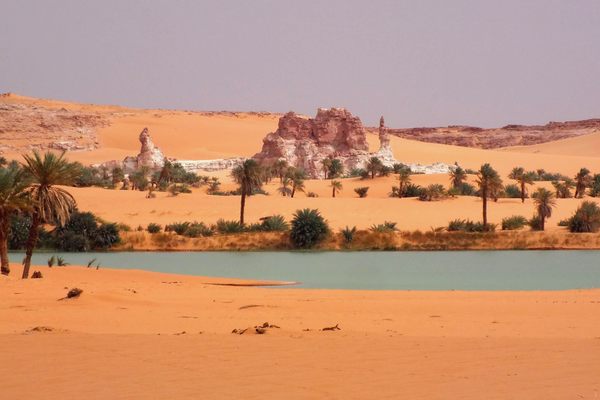
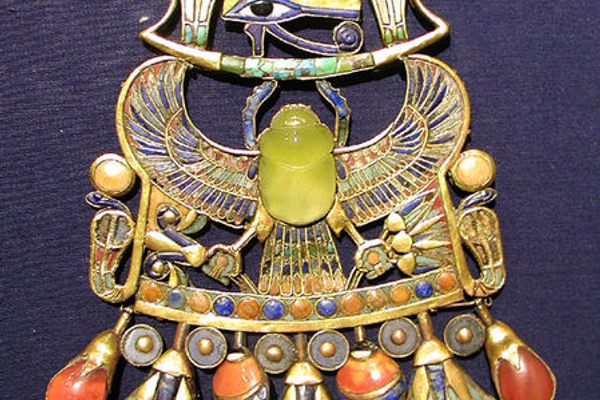
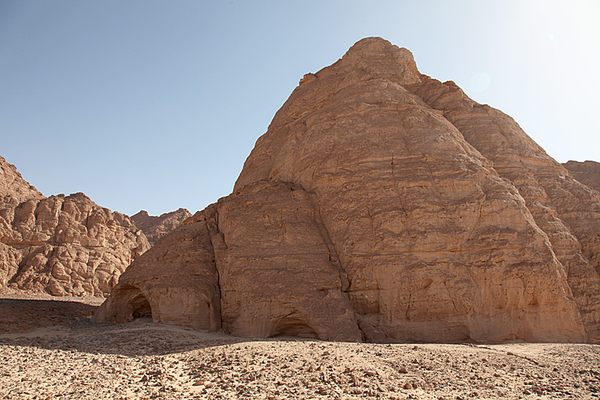

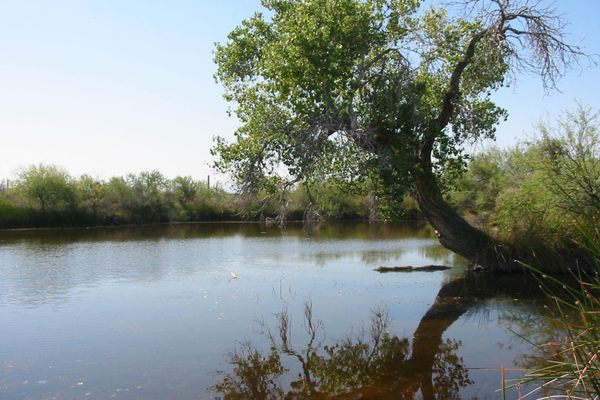
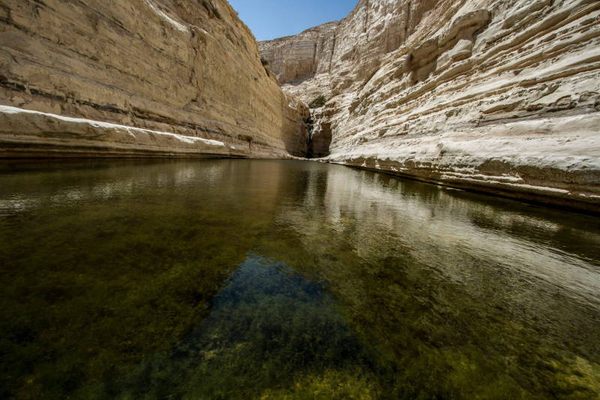
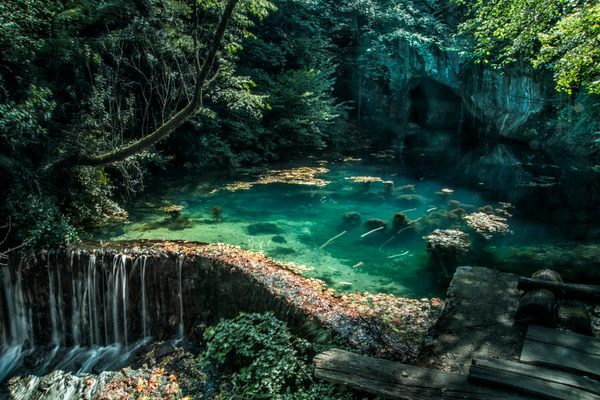


Follow us on Twitter to get the latest on the world's hidden wonders.
Like us on Facebook to get the latest on the world's hidden wonders.
Follow us on Twitter Like us on Facebook